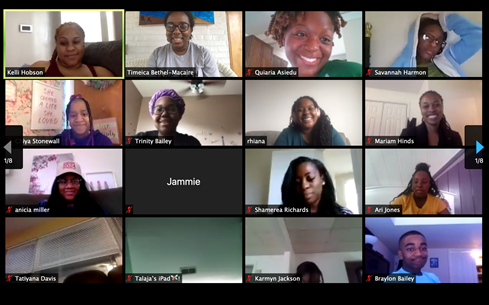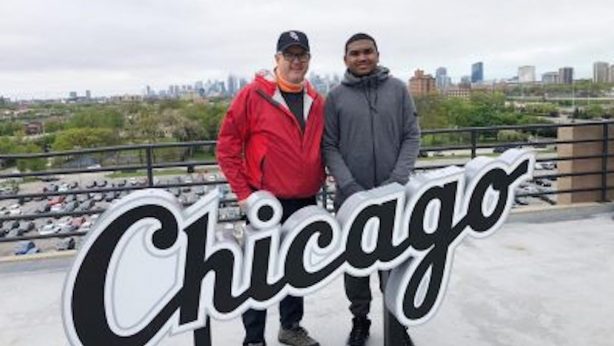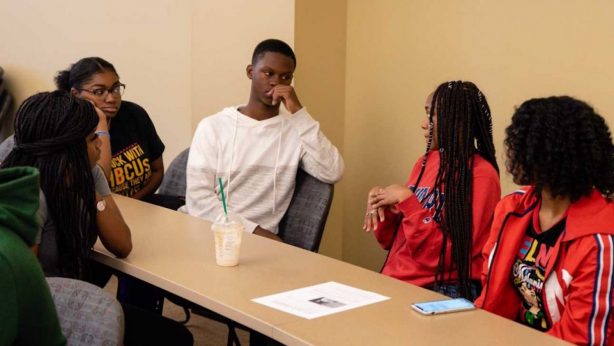COVID-19

By Jonathan T. Swain, President & CEO of LINK Unlimited Scholars
The COVID-19 crisis is teaching us a lot about ourselves, our community, and the state of our society. It’s laying bare inequities often ignored and revealing a crisis that has always existed right under our noses: underserved communities across our city lack access to basic resources that have created opportunity gaps for black and brown residents in Chicago. These gaps, from food and housing insecurity to internet access, are now being exacerbated by the crisis facing people across the globe.
As students adapt to online learning, it’s important to note that many residents who live on Chicago’s south and west sides, in neighborhoods with a majority of black residents, don’t have internet access at home, widening the digital divide in the city according to data from The U.S. Census and a WBEZ analysis. 56% of Englewood households, and 46% of both Auburn Gresham and South Shore households reported not having internet access while just one in every 10 households in North Side neighborhoods like Lake View, Lincoln Park, and North Center lacked access. Nationally, 2018 data from The Pew Research Center showed one-quarter of black teenagers reported they often or sometimes couldn’t complete their homework because of a lack of reliable access to a computer or internet connectivity, compared with 13% of white teenagers and 17% of Hispanic teenagers.
But for thousands of Chicago Public School students, internet access isn’t their biggest hurdle, finding a permanent home and two meals a day is. In the 2018-19 school year, more than 16,450 CPS students didn’t have a permanent home and were in temporary living situations including staying in shelters, motels, cars, or “doubling up” to live in the homes of others according to the Chicago Coalition for the Homeless. Nearly all (98.3%) of Chicago’s homeless students are students of color, and black students alone account for 81%.
Now, we find ourselves in the midst of a crisis that might go on for weeks, if not months. Students throughout the south and west sides are home bound along with all others in Chicago. However, unlike students in many other parts of the city, they find themselves facing significant barriers that will keep them from focusing on their school work. Students from higher income neighborhoods often have the resources and support they need at their disposal whether at school or at home. But far too many students are caught in an under-resourced system trapped by their zip code – and without the tools they need, they will be set back even further.
If schools decide to close for the rest of the school year, which looks more likely everyday, these students, especially those in critical grade levels like 7th and 11th grade, may face insurmountable challenges. To students who are financially privileged, this crisis may not be much more than a minor academic inconvenience that won’t impede on their ability to continue learning. However, for underserved students, this crisis can negatively affect the trajectory of their lives.
These students were already under-resourced pre COVID-19 and are now more likely to lag behind their peers. What will happen when it’s time for them to make decisions about high school and college? What will the long term impact be? The college graduation gap between African American students and other racial groups was estimated to be as much as 20 percentage points. And data shows that a college degree can be a key in opening doors to the middle class that were previously shut to our community.
Access to resources and support from their schools, or to college preparation and mentorship programs like LINK, is vital for these students in helping them to apply for competitive high schools and colleges, remain engaged, and graduate. The fact that vulnerable students will lack these resources for weeks, and likely months, at a time amidst the COVID-19 crisis will disrupt more than their education – it could disrupt their path and ultimately close that door of opportunity. When we emerge from this crisis, and we will, we can no longer accept a status quo where some students have every opportunity to move forward while others stand still.


